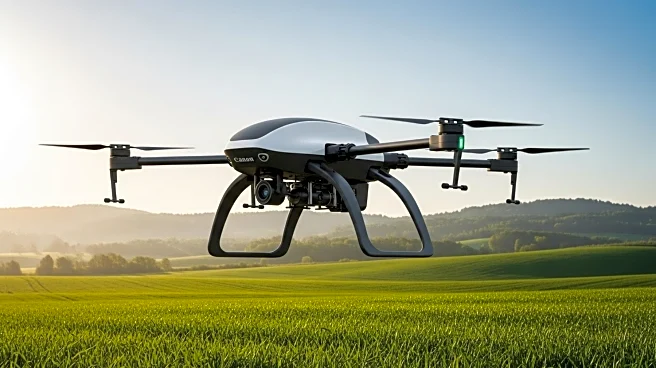What's Happening?
The United States agricultural machinery market is projected to experience significant growth, driven by technological advancements aimed at enhancing efficiency and sustainability. The market, valued at USD 140 billion in 2020, is expected to reach USD 205 billion by 2028, growing at a compound annual growth rate (CAGR) of 7% from 2024 to 2031. Key players such as AGCO Corp, CNH Industrial N.V., and Deere & Co. (John Deere) are leading the charge with innovations in precision and autonomous technology. These advancements include autonomous and AI-driven machinery designed to address labor shortages and improve farming efficiency. Additionally, there is a strong focus on sustainability, with the development of electric and hybrid machinery and precision farming tools that minimize resource usage. Despite recent fluctuations in market interest, investments in supply chain improvements and new product launches are expected to bolster market growth.
Why It's Important?
The growth of the agricultural machinery market is crucial for the U.S. economy, particularly in the agricultural sector, which relies heavily on mechanization for productivity. Technological innovations in this market can lead to increased efficiency and reduced environmental impact, aligning with broader sustainability goals. Companies investing in autonomous and eco-friendly machinery stand to gain a competitive edge, potentially leading to increased market share and profitability. Farmers benefit from improved machinery that can reduce operational costs and enhance crop yields. However, economic pressures such as high interest rates and volatile commodity prices may influence purchasing decisions, impacting the market's growth trajectory.
What's Next?
Major companies are expected to continue investing in future technologies, with Deere & Company planning a $20 billion investment in manufacturing upgrades and autonomy software. AGCO's expansion of its parts distribution center in California aims to support farmers in the Western U.S. and promote the Fendt brand. As the market adapts to economic pressures, stakeholders may focus on strategic investments and product innovations to maintain growth. The shift in the buying cycle suggests that farmers may delay purchasing decisions, potentially affecting sales patterns and market dynamics.
Beyond the Headlines
The push towards sustainable agricultural machinery reflects broader environmental concerns and the need for eco-friendly solutions in farming. This trend may lead to long-term shifts in farming practices, with increased adoption of precision agriculture and reduced reliance on traditional methods. The integration of AI and autonomous technology in farming equipment could transform the industry, leading to new business models and opportunities for innovation.









